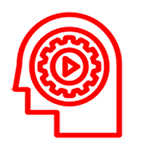What Are the 5 Pillars of Human Psychology Everyone Should Know?
Table of Contents
ToggleIntroduction
What Are the 5 Pillars of Human Psychology Everyone Should Know?
Understanding human psychology is essential for personal growth, building meaningful relationships, and navigating the complexities of life. Psychology provides insights into how we think, feel, and act.
This article explores the five pillars of human psychology that everyone should know, providing a foundation for understanding human behavior and improving your interactions with others.
The Five Pillars of Human Psychology
Psychologists often categorize human psychology into five key domains that shape our mental and emotional well-being. These pillars are:
- Biological Psychology
- Cognitive Psychology
- Social Psychology
- Developmental Psychology
- Abnormal Psychology
Biological Psychology – The Foundation of Human Behavior
Biological psychology focuses on the physical and biological processes that influence human behavior. This includes brain structure, neurotransmitters, hormones, and genetics.
Key Aspects:
- How the brain influences emotions and actions.
- The role of genetics in personality and behavior.
- Effects of hormones on mood and decision-making.
For instance, dopamine plays a significant role in motivation and reward, while serotonin impacts mood and emotional stability.
Cognitive Psychology – The Mind’s Operating System
Cognitive psychology examines mental processes such as perception, memory, problem-solving, and decision-making.
Key Aspects:
- How we process and store information.
- The impact of cognitive biases on decisions.
- Strategies to enhance memory and learning.
Understanding cognitive processes can help you develop better problem-solving skills and make informed decisions in everyday life.
Social Psychology – The Dynamics of Interaction
Social psychology studies how individuals influence and are influenced by others in social contexts.
Key Aspects:
- Group behavior and peer influence.
- The role of social norms and cultural expectations.
- How attitudes and stereotypes shape interactions.
By understanding social psychology, you can improve communication skills and build stronger relationships.
Developmental Psychology – Growth Across the Lifespan
Developmental Psychology – Growth Across the Lifespan
Developmental psychology explores how people grow and change throughout their lives. This includes physical, emotional, and cognitive development from infancy to old age.
Key Aspects:
- Stages of human development (e.g., Erikson’s stages of psychosocial development).
- Impact of childhood experiences on adult behavior.
- How aging affects cognition and emotions.
Being aware of developmental psychology can help you empathize with people at different life stages.
Abnormal Psychology – Understanding Mental Health Challenges
Abnormal psychology focuses on atypical patterns of behavior, emotion, and thought that may indicate mental health issues.
Key Aspects:
- Identifying common mental disorders (e.g., anxiety, depression).
- The stigma around mental health.
- Importance of seeking help and treatment.
Recognizing signs of mental health challenges is crucial for offering support to others and seeking help when needed.
FAQs About What Are the 5 Pillars of Human Psychology Everyone Should Know?
Q1: Why are the five pillars of psychology important?
The five pillars provide a comprehensive framework for understanding the complexities of human behavior and mental processes. They are essential for personal development, better relationships, and societal harmony.
Q2: Can understanding these pillars improve my mental health?
Yes, knowing how biological, cognitive, social, developmental, and abnormal psychology influence your life can help you make informed choices about mental health care and personal growth.
Q3: How does social psychology apply in real life?
Social psychology helps us navigate group dynamics, improve communication, and understand social norms, making interactions smoother and more meaningful.
Q4: Is abnormal psychology only about mental disorders?
No, abnormal psychology also explores unusual patterns of thought and behavior, providing insights into the diversity of human experiences.
Q5: How can I learn more about these pillars?
Reading books, attending workshops, or consulting professionals in psychology are great ways to deepen your understanding of these foundational areas.
Conclusion
The five pillars of human psychology—biological, cognitive, social, developmental, and abnormal—offer valuable insights into our thoughts, emotions, and behaviors.
Understanding these domains empowers you to make informed decisions, foster healthy relationships, and enhance personal and professional growth. By delving into these pillars, you can unlock the secrets to a balanced and fulfilling life.


